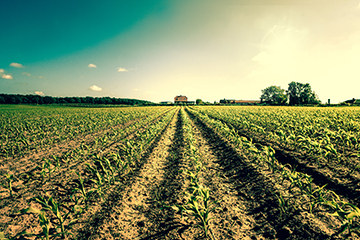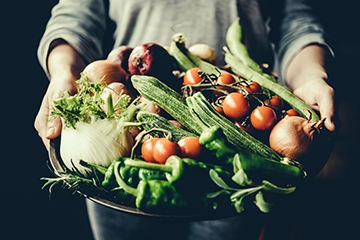Sandbox Webinar Series

TEACHING SUSTAINABLE FOOD SYSTEMS IN OUR TIMES
This sandbox webinar series is designed for Sustainable Food Systems educators to provide professional development opportunities to gain, enhance, and share knowledge and skills regarding Justice, Equity, Diversity, and Inclusion (JEDI) and Online Teaching.
![]()

WEBINAR #1
The Sharing of Indigenous Knowledge Through Academic Means by Implementing Self-Reflection and Story
September 17, 2020
This webinar focuses on Indigenous methodologies and knowledge transmission in order to reflect on cultural nuances and cultural complexity. Professor Sweeney shares strategies on implementing self-reflection and story as ways to improve equity, diversity, and inclusion in our classrooms and programs. We engage in discussion on cultural protocol and positionality with examples from tribal and rural contexts.
[Video temporarily unavailable during the captioning process]
ADDITIONAL RESOURCES FOR WEBINAR #1
![]()
WEBINAR #2
Developing an Equity Competency in Sustainable Food Systems Education: Exploring a New Model and Sharing Teaching Activities
October 9th, 2020
In this webinar, the speakers present their reseach on the extent to which Sustainable Food Systems Education in the USA and Canada address equity. They discuss their proposed equity competency model and provide examples of activities from their teaching practices that support the development of future professionals capable of dismantling inequity in the food system.
[Video temporarily unavailable during the captioning process]
![]()
WEBINAR #3
Diversiform Storytelling: An Indigenous Pedagogical Model That Invites Diverse Voices Into Learning
October 22nd, 2020
Indigenous knowledge is grounded in the landforms and ecologies of the places that give it substance and in the relationships that people develop with those places. Diversiform storytelling is an Indigenous pedagogy that sustains and perpetuates that knowledge by ensuring the inclusivity of the diverse voices that transmit it. In this interactive webinar, attendees participated in a storytelling session and then used the experience to build awareness of Diversiform storytelling and its application to sustain and perpetuate diverse voices and identities in your work as an educator.
[Video temporarily unavailable during the captioning process]
![]()
WEBINAR #4
CRITICAL FOOD LITERACY THROUGH MULTICULTURAL TEXTS
November 5th, 2020
One way to invite students to engage with Justice, Equity, Diversity, and Inclusion (JEDI) issues in the food system is to use multicultural texts that highlight diverse, marginalized perspectives of food workers, many of whom are people of color, women, and/or undocumented. The objectives for this interactive webinar were: 1) to introduce a conceptual framework for fostering critical food literacy; 2) to model the process of teaching with multicultural texts about food workers, with virtual adaptations; and 3) to illustrate the need for instructors to be comfortable with discomfort and to be both reflective and reflexive as they engage in sustainable food systems education.
[Video temporarily unavailable during the captioning process]
ADDITIONAL RESOURCES FOR WEBINAR #4
![]()
WEBINAR #5
PEDAGOGY AND PANDEMIC: HOW THE CONTEMPLATIVE TECHNOPEDAGOGY FRAMEWORK CAN ENRICH TEACHING AND LEARNING DURING COVID-19
Given the widespread changes related to the ongoing COVID-19 global public health pandemic, teaching and learning are increasingly utilizing digital technology. Considering the scope, scale, and speed of these various changes, it is critically important to emphasize contemplation when making decisions involving technology and education. This webinar introduceS the Contemplative Technopedagogy Framework and explores how the framework can help food systems educators make pedagogical decisions about digital technology with intent to effectively and holistically enrich teaching and learning. While clearly applicable to current educational environments, this framework and associated topics are also entirely relevant to teaching and learning in post-pandemic contexts.
[Video temporarily unavailable during the captioning process]
![]()
WEBINAR #6
MOBILIZING CRITICAL FOOD SYSTEMS EDUCATION FOR FOOD SOVEREIGNTY: INSIGHTS FROM BRAZIL'S LANDLESS WORKERS' MOVEMENT
Agrarian social movements are at a crossroads. Although these movements have made significant strides in advancing the concept of food sovereignty, the reality is that many of their members remain engaged in environmentally degrading forms of agriculture, and the lands they farm are increasingly unproductive. Whether movement farmers will be able to remain living on the land, and dedicated to alternative agricultural practices, is a pressing question.
In this webinar, Dr. David Meek explores these questions through a discussion of his recent book The Political Ecology of Education (2020; West Virginia University Press, Radical Natures series). His presentation examines the opportunities for and constraints on advancing food sovereignty in the 17 de Abril settlement, a community born out of a massacre of landless Brazilian workers in 1996. Based on immersive fieldwork over the course of seven years, Meek makes the provocative argument that critical forms of food systems education are integral to agrarian social movements’ survival. While the need for critical approaches is especially immediate in the Amazon, Meek’s presentation speaks to the burgeoning attention to food systems education at various educational levels worldwide, from primary to postgraduate programs. His book calls us to rethink the politics of the possible within these pedagogies.
[Video temporarily unavailable during the captioning process]
![]()
WEBINAR #7
JUST SUSTAINABILITIES IN POLICY, PLANNING, AND PRACTICE
In this talk, Julian outlines the concept of just sustainabilities as a response to the ‘equity deficit’ of much sustainability thinking and practice. He explores his contention that who can belong in our cities will ultimately determine what our cities can become. He illustrates his ideas with examples from urban planning and design, urban agriculture and food justice, and the concept of sharing cities.
[Video temporarily unavailable during the captioning process]
![]()
WEBINAR #8
21-DAY RACIAL EQUITY HABIT-BUILDING CHALLENGE
In this talk, Professor Karen Spiller introduces the seventh annual 21-day Racial Equity Habit-Building Challenge. From April 5th to the 25th thousands of people are joining together on a shared journey of learning, expanding your knowledge, and charting a course of action to dismantle racism in our food system and our world! The 21-day Racial Equity Habit-Building Challenge provides an opportunity to create time and space to reflect on daily email prompts with resources to build more effective social justice habits including those dealing with issues of race, power, privilege, and leadership. You commit to deepening your understanding of, and willingness to confront, racism for twenty-one consecutive days in April of 2021. The Challenge will raise your awareness, change your understanding and shift the way you behave. There is no charge to participate in the 21-Day Racial Equity Challenge. The Food Solutions New England network organizes the Challenge as part of their commitment to building racial equity in our food system.
[Video temporarily unavailable during the captioning process]
![]()
WEBINAR #9
COMMUNITY PARTNERSHIPS IN CO-DESIGN OF SUSTAINABLE FOOD SYSTEMS CURRICULA
The development of academic degree programs and curricula face the risk of being disconnected from communities when they are designed without stakeholder engagement. This webinar focuses on the importance of community partnerships in the co-design of sustainable food systems curricula. The three speakers are leaders of the Sustainable Community Food Systems Bachelor of Applied Science Program at the University of Hawai’i West O’ahu and they share experiences, approaches, and lessons learnt regarding academic and community partnerships for curricula design.
[Video temporarily unavailable during the captioning process]
Contact Us
Montana State University
P.O. Box 1234
Bozeman, MT 59717-1234



